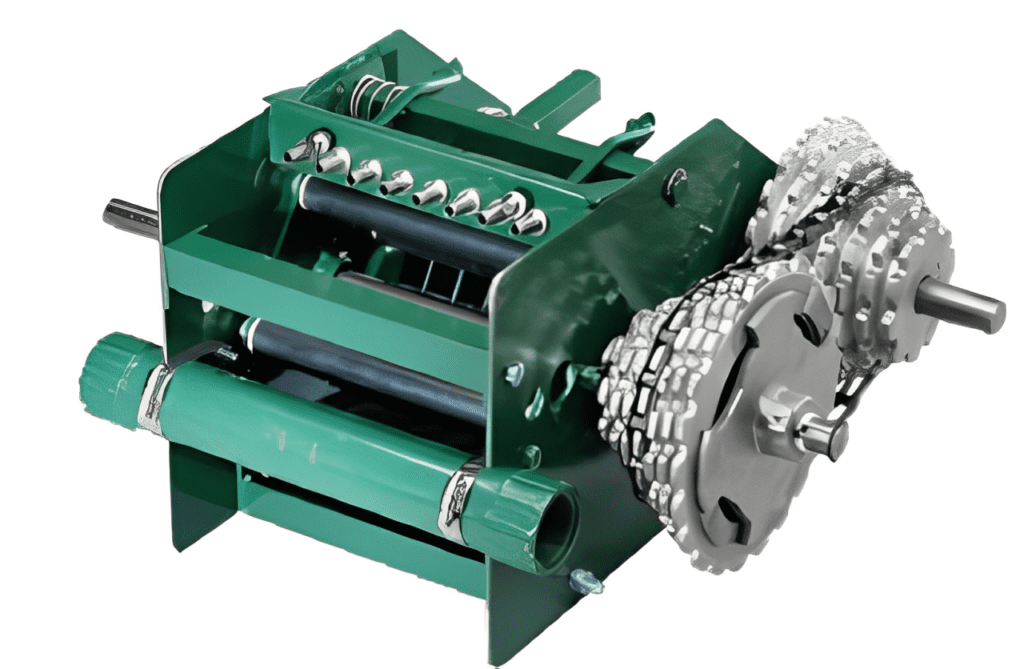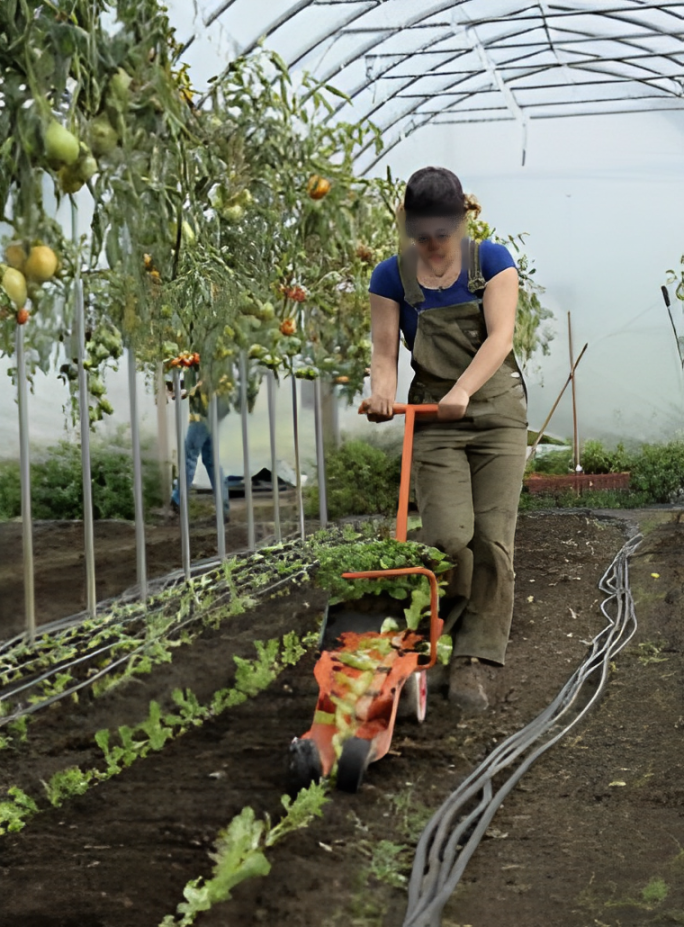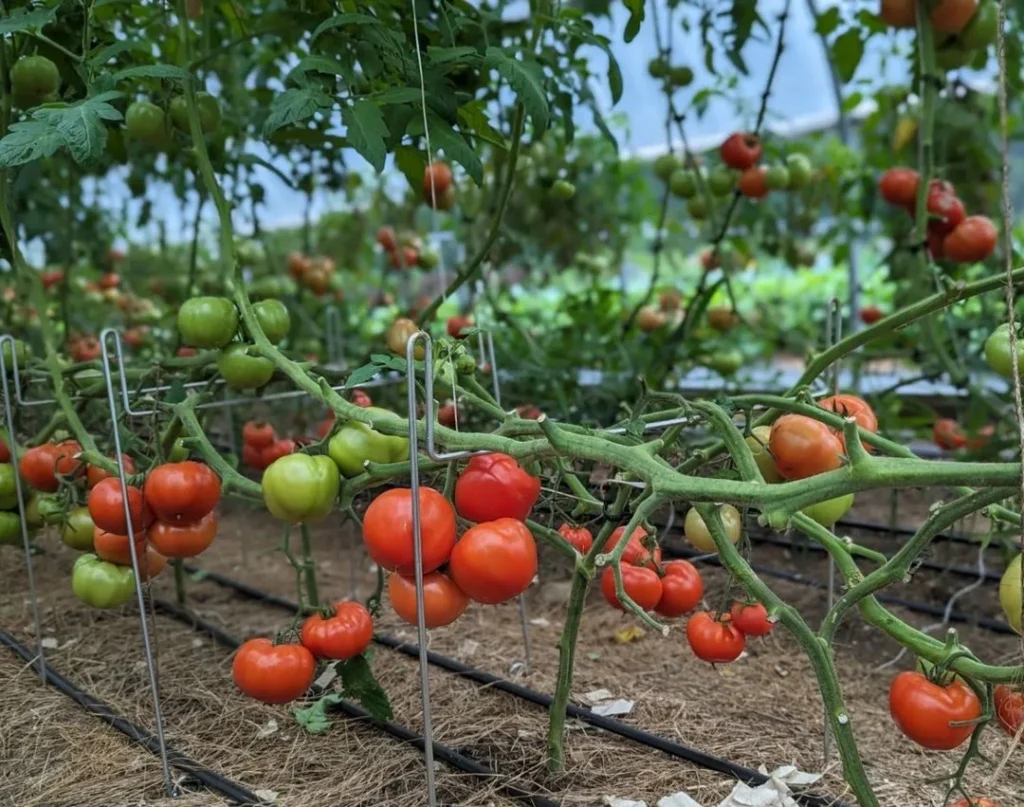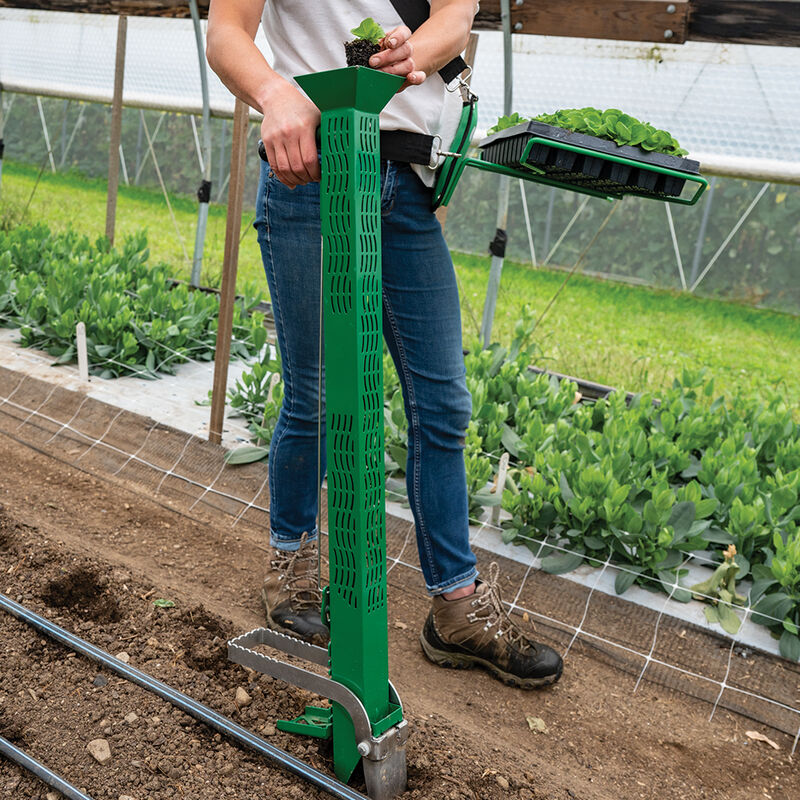New tools that will boost your vegetable production
While we usually wait until our November issue to focus on the innovations being used by ecological farmers, April is also a good time to take a look at a few new things particularly for vegetable growers. Here are some tools and technologies we’re keeping an eye on.
PLANTER SQUEEZE PUMPS
While growers wait for high-precision sprayers to grow in capability and to decrease in price, there’s an old technology that can deliver better results than the sprayers most farms are currently using: squeeze pumps.

Most modern pumps apply liquid solution into a hole or furrow at fairly high pressures — anywhere from 40 to 100 pounds. To maintain application rates from a range of three to eight gallons per acre — which is common — requires pin-sized holes.
But there are problems with this from a biological agriculture perspective. The high pressure has negative impacts on biology. Also, biological materials like liquid fish and humic substances have difficulty with small nozzles.
Squeeze pumps solve these problems. They have a piece of tubing connected to each nozzle that is massaged by a set of rollers and is driven by a ground wheel. When the planter goes faster or slower, it adjusts automatically and produces steady drips of amendment at very low pressure. This is very friendly to biology.
Squeeze pumps are basically unclog-able. Any type of biological material can go through it — even large molecules like mycorrhizal fungi that high-pressure streams will damage.
For growers who have an interest in applying biological products — whether that be compost teas, mycorrhizal fungi, or simply liquid fish and humic acid — a squeeze pump is a low-tech, wise investment.
ECOROBOTIX HIGH-PRECISION SPRAYER
Someday we’re going to view the indiscriminate, uniform spraying onto an entire field of anything — herbicides, foliar nutrient treatments, water, synthetic fertilizers, biopesticides, etc. — as a wasteful, crude practice. High-precision spraying is in fact a reality today. One company doing this is Ecorobotix, whose ARA unit allows ultra-localized spraying of any type of liquid onto an area of just 6 x 6 centimeters. Sensors and algorithms identify plants and weeds and can place a spray on one or the other, depending on whatever the user tells the machine. Nozzles are spaced every 4 centimeters, and the unit can work at speeds of 7 km/hour, covering 10 acres an hour. Ecorobotix claims that their technology reduces standard herbicide applications by up to 80 percent.
ARA units can operate equally well at night as during the day, and even during windy conditions. Having nozzles close to the ground, and under the canopy of the machine itself, reduces drift — the company reports by up to 90 percent. While the current roster of crops and weeds ARA works with is relatively small, this is almost certainly a technology that will become widespread in the coming years.
The Ecorobotix ARA unit delivers ultra-precise liquid applications that can reduce herbicide use by up to 80 percent.
SPACEX STARLINK FOR RURAL CONNECTIVITY
Squarely in the category of a technology that will prove simultaneously helpful and potentially harmful, rural — and even remote — areas will soon enjoy internet access just as fast and ever-present as in cities. John Deere specifically has announced that it is teaming up with SpaceX to begin offering satellite-based Wi-Fi to select farming areas later this year.

Taken with NightCap. ISS mode, 1423.84 second exposure, 1/1s shutter speed.
Deere’s angle is that it wants farmers to use (i.e., become dependent upon) its services just as much as its equipment. These services surely will enable growers to be more efficient and could theoretically enable the more judicious use of herbicides, pesticides, and synthetic fertilizers.
Having reliable rural internet could also encourage more people who want to steward the land to move out of urban/suburban areas — something that is much needed. The track record of virtual connectivity, though, is that it does more to separate us than to build local communities. This innovation is coming regardless; we must choose to use it responsibly.
PAPERPOT TRAYS

Are a valuable tool for market gardeners that enable the quick transplanting of seedlings. The technology, originally from Japan, has been around for at least a decade, and it is now produced by a number of vendors. We mention it simply in case any growers hadn’t heard that the National Organic Program finally approved the chains for organic production in late 2022.
NEVERSINK TOOLS’ HOOK AND WICKET SYSTEM

For greenhouse tomatoes keeps plants off the ground and eliminates the need for moving a ladder around the greenhouse to lower indeterminate plants. The hook, which attaches to the string and to the line above, can be lifted and moved straight from the ground; the wickets go across the row and allow vines to rest where fruits are easy to harvest.
FOR MARKET FARMERS
Finally, much of the growth and innovation in the vegetable world stems from the market farming community. Here are a few new ideas from that space.

Kwik Hoops with insect netting or other row cover are an inexpensive alternative to hoophouses. A wire stretches over the sturdy hoop, keeping the covering in place over a single 30-inch row. Paperpot.co sells their own version of insect netting that’s a big cost savings from the European-made alternatives. It’s easy to put on, the covering stays in place even in rough winds, and the hoops will last for years or even decades.

Finally, Johnny’s hand transplanter is a lightweight, back-saving device for those who do a lot of transplanting the old-fashioned way (without the paperpot transplanter). It’s an improved redesign of older tools, and Johnny’s pairs it with a “transplant caddy” that makes it easy for one person to carry a tray of seedlings and have both hands free.















